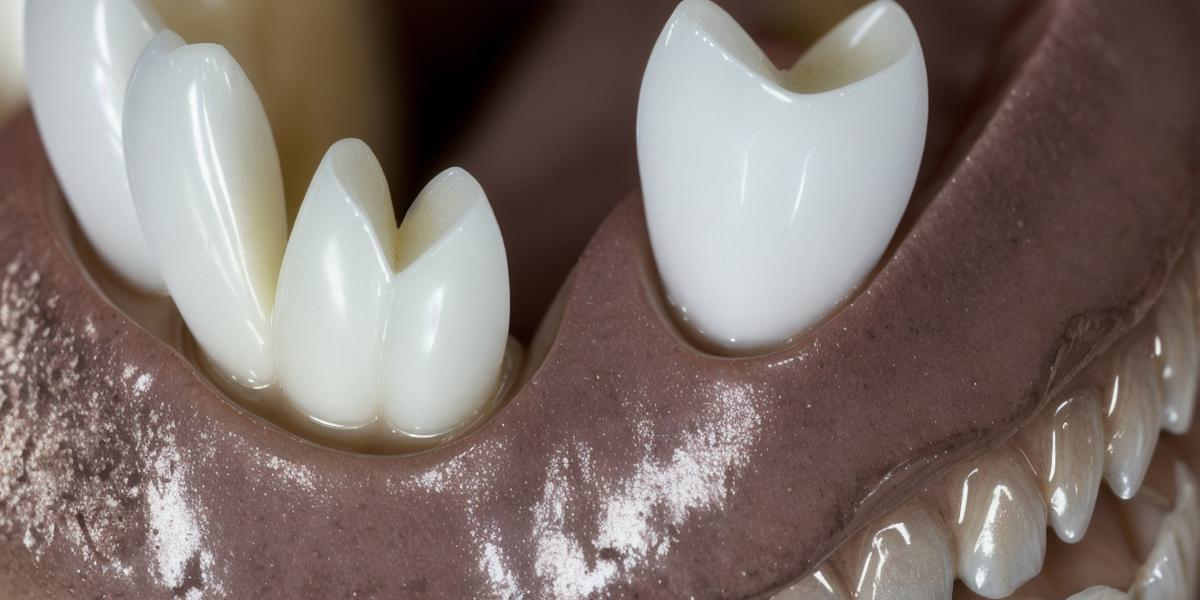The Importance of Cleaning Crown Teeth: Tips and Tricks
Dental crowns are a common dental procedure that involves placing a cap over the top of a damaged tooth to restore its shape, size, and function. While dental crowns can improve the appearance and functionality of teeth, they also require regular maintenance to ensure their longevity and effectiveness. In this article, we will discuss the importance of cleaning crown teeth and provide tips and tricks for keeping them healthy and looking their best.
Why Cleaning Crown Teeth is Important
Dental crowns are made of various materials such as ceramic, porcelain, or resin, and while they are designed to be durable and long-lasting, they can still become stained or discolored over time. This can happen due to exposure to certain foods and drinks, smoking, or even just the natural aging process. When this happens, it’s important to clean your crown teeth regularly to maintain their appearance and prevent any potential problems from arising.
Tips for Cleaning Crown Teeth
Here are some tips for cleaning your crown teeth effectively:
- Brush Regularly: It’s important to brush your teeth twice a day, including your dental crowns, with a soft-bristled toothbrush and fluoride toothpaste. This will help remove any plaque or debris that may have accumulated on the surface of your crown.
- Use a Mouthwash: Rinsing your mouth with an antimicrobial mouthwash can also help keep your crown teeth clean and healthy. Look for mouthwashes that are specifically formulated for dental use and contain ingredients such as chlorhexidine or hydrogen peroxide.
- Avoid Certain Foods and Drinks: Some foods and drinks, such as coffee, tea, wine, and sugary snacks, can stain your teeth and cause problems with your dental crowns. Try to avoid these whenever possible or limit them in moderation.
- Schedule Regular Checkups: It’s important to schedule regular checkups with your dentist, especially if you have dental crowns. Your dentist can clean your teeth thoroughly and check for any potential problems that may be developing underneath the surface of your crown.
- Consider Professional Cleaning: In some cases, it may be necessary to have your crown teeth professionally cleaned by a dental hygienist. This can involve using specialized tools and techniques to remove any buildup or stains that may be stubbornly resistant to regular brushing and flossing.
FAQs
Q: What should I do if my dental crown becomes discolored?
A: If your dental crown becomes discolored, it’s important to schedule an appointment with your dentist right away. They can determine the cause of the discoloration and recommend appropriate treatment options, such as a teeth whitening procedure or even replacing the crown if necessary.
Q: Can I still have a root canal if I have a dental crown?
A: Yes, you can still have a root canal if you have a dental crown. In fact, many people with dental crowns require root canals due to tooth decay or damage that has affected the underlying tooth structure.
Q: How long does a dental crown typically last?
A: The lifespan of a dental crown can vary depending on several factors, including the type of material used, the individual’s oral hygiene habits, and their overall dental health. With proper care and maintenance, dental crowns can last anywhere from 5 to 15 years or even longer.
Conclusion
Maintaining good oral hygiene is essential for keeping your teeth healthy and looking their best, especially if you have dental crowns.
